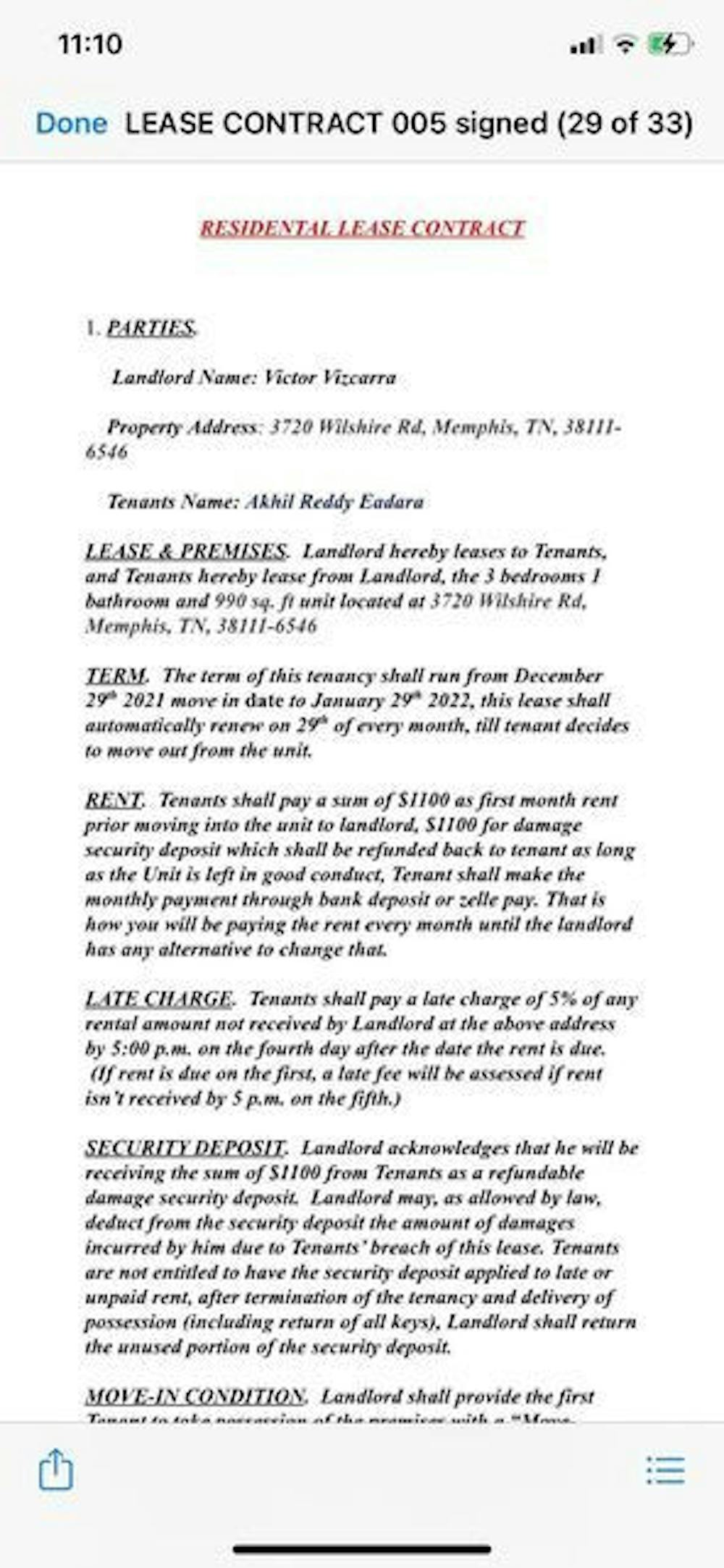A student at the University of Memphis was tricked out of $2,200 after an ad offering a house for rent near campus turned out to be an elaborate scam.
Akhil Eadara, a master’s in science of information systems student who recently immigrated to the bluff city from India, was looking for a place to stay when he spotted an ad offering a house for rent on Facebook Marketplace.
According to the incident report that he filed with campus police services on Jan. 5, Eadara texted the number that was listed in the ad and asked to visit the home in person so that he could walk through it and check it out.
Eadara arrived at the home, located at 3720 Wilshire Rd., roughly an eight-minute drive from campus, found the keys under the mat and was able to go inside and inspect the home.
In an Instagram message to the Daily Helmsman, Eadara said that after viewing the property, he agreed to rent it but was told that he needed to sign the lease agreement before finalizing the deal.
The terms of the agreement according to a copy provided by Eadara to the Daily Helmsman list Victor Vizcarra as Eadara’s would-be landlord. The email account that actually sent the lease agreement, however, was panhandlebuilding@gmail.com
The lease agreement was also signed by an attorney by the name of Steven Tomlinson.
A search for Tomlinson’s membership with the Tennessee Bar Association revealed no one under that name affiliated with the organization.
Any information about Vizcarra nor the company could be found online, either.
The incident report Eadara filed as well as a search of the property’s address reveal that it belongs to neither party, but instead, Neighborhood Revival, a Memphis-based real estate company.
In an email response, Andrew Glisson, owner of Neighborhood Revival, told the Daily Helmsman Facebook and Craigslist are unsafe websites to find a home to rent.
“We strongly suggest instructing students to NEVER look for homes for rent on Facebook or Craigslist, they do not credential and verify landlords,” he said. “Well known sites like Zillow/Rent.com/Apartments.com/etc (where we advertise) credentials landlords and verifies that we are a business through a very rigorous process.”
Under the terms of the lease agreement, Eadara was instructed to pay $1,100 as one month’s rent in advance as well as an $1,100 refundable security deposit for a total of $2,200.
Eadara told the Daily Helmsman that he sent the requested funds through a money order and that was the last that he had heard anything.
“We paid him through money order. Afterwards, he never picked up the call. He never showed up,” he said.
Eadara’s incident report states that after sending the money to a Wells Fargo account in Vizcarra’s name, the phone number listed in the ad that he had been messaging had been disconnected.
This is an on-going investigation. More information will be provided as it becomes available.
Pictured above is a snippet of the phony lease agreement.






